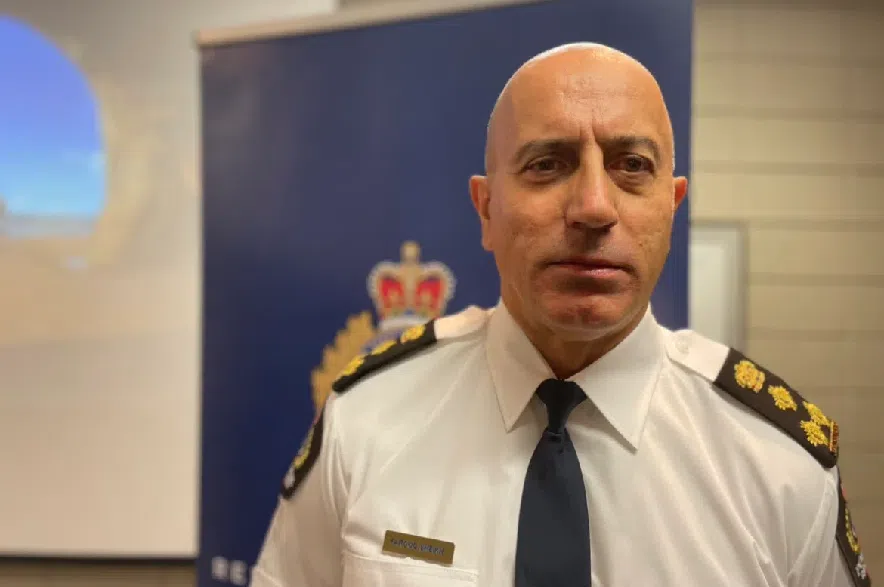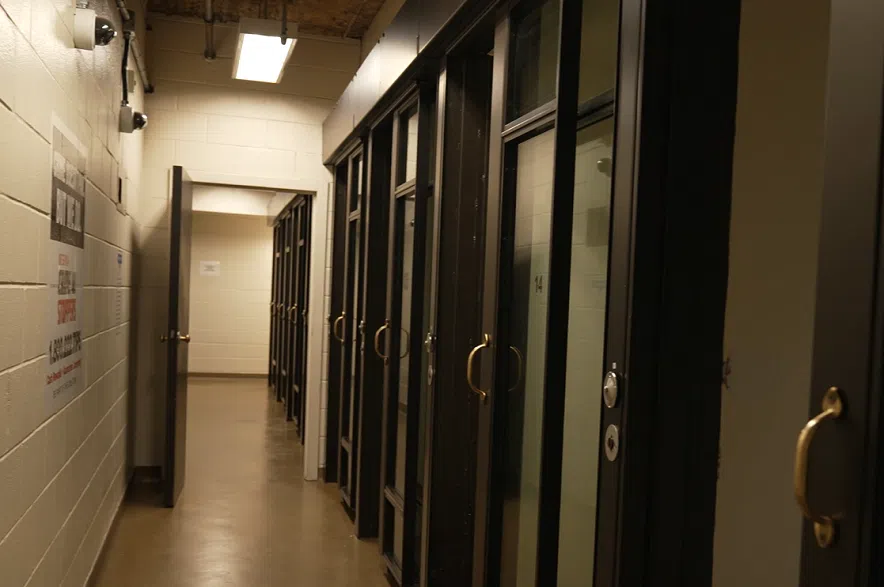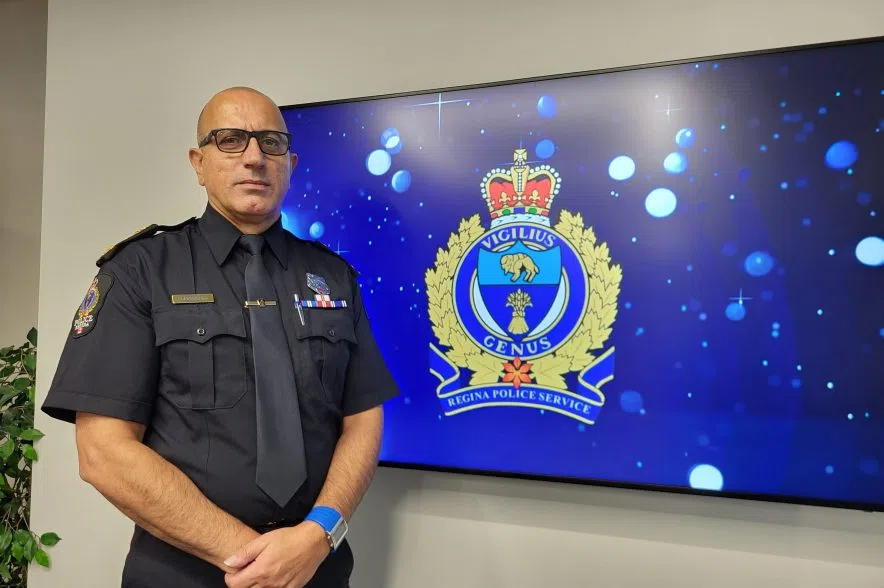Regina Police Chief Farooq Sheikh had never visited the Queen City before starting the position last December.
While he’s lived and worked throughout the world, from London to Calgary, he’s noticed a sense of community spirit in Regina unlike anywhere else. He also notes how convenient it is to get from one side of the city to another within 20 minutes.
Reporter Daniel Reech spoke with Sheikh to recap the past year and look ahead to 2025.
Over the past year, what have you learned about the city of Regina?
What I found, is that the community is very welcoming, and fortunately, I get invited to so many different events of all different cultures. I love going to events because at the same time, I’m learning a new culture, I’m understanding people’s concerns, and they’re getting to know about me. So I think the community has opened their arms to me and welcomed me in. I’m really grateful of that.
What are some of the biggest public safety issues you’ve seen over the last year?
Social issues are going to be an issue anywhere and you look across Canada – all the cities experience the same problems.
Mental health, addictions, overdoses – those are issues. Here in Regina, arson has been an issue for us. Luckily, the majority have been to bins rather than to structures.
I think trust and confidence could be an issue, where people are concerned to go downtown.
Some of the communities downtown, some of the residents, some of the businesses and some of the shoppers, have felt a bit concerned with the safety, but I feel positively that’s changed over the last few months since we introduced a dedicated downtown policing team.
Of those issues you mentioned, which ones have been the most burdensome to tackle?
There’s a lot of vulnerable people. Trying to get them support that they need – and a lot of it’s not through the police, but the police can help. We’ve been working closely with our key partners and there’s a complex need shelter that we can take vulnerable people to that we would have normally brought into a police station, so that’s helping.
The overdoses are a problem and the police perspective is: we have to respond to calls for service, so we then go do our best to save lives. And every month, I’m happy to say we saved a number of lives. But for every life lost, for me, it’s one life too many.

Chief Farooq Sheikh said the new complex-needs shelter is helping get people the care they need. (Gillian Massie/980 CJME)
The alternative response officer program was introduced this year, are there any other initiatives you would like to expand?
One thing in particular, which is a first in Canada, was biometrics. We unfortunately had a death in custody the year before, and that was no fault of the police. But at the same time, we want to mitigate any threat and risk. We want to make sure people, when it comes to custody, leave in a better place.
Some of our staff started to do some academic research around the country and around the world, to see what best practices were to do better in our cells to prevent people from dying.
My staff identified that in Edmonton, they were trialing biometrics and in America they were using it, so we introduced biometrics in March and I’m happy to say in the time between March and now, we’ve saved the lives of at least five people.
We’ve got to look at our budgets to see whether we can get them in all the cells. Because again, when people come into custody here Regina, I want to make sure they’re safe and give my staff an additional tool.

The Regina Police Service says it’s one of the first police forces in Canada to begin using biometrics to monitor inmates’ health while they are in cells. (Regina Police Service/Screenshot)
Regina has a large Indigenous population and many Indigenous people today feel they have a somewhat strained relationship with the police. How have you seen this dynamic play out and what has RPS done to address this?
I haven’t seen it significantly here, but I do understand the issues that’s happened in other provinces and other places. We’re doing so much when it comes to Truth and Reconciliation. We have regular meetings with our elders to advise us on what we can do better. We are proactive in setting up a number of community events involving Indigenous communities, so we’re as proactive as we can even with our recruitment strategy – we’re doing work at First Nations University.
We’re always looking at ways to improve, always looking at ways to do things better and always looking at ways to get educated. Whatever event I can go to as the new chief, involving Indigenous groups, I go because I want to learn about the culture, I want to understand.
How do the problems here about Indigenous issues diverge from other areas?
In some other provinces they’ve had issues where they believe that crimes involving Indigenous communities are not being investigated properly. I’m happy with the progress we’re making here. What we want to do is to try and see if we can continue to hire more Indigenous people into the police agency both in a sworn and civilian capacity.
But when it comes to social issues – those are the same across the country in all cities and that’s challenging for us all. We’re doing everything we can to try to combat that.
What have been some of the key takeaways from talks with elders?
I think what they don’t want is people paying lip service. They want people who genuinely care.
There’s going to be some learning, and there’s going to be times we make mistakes, but we genuinely care, and we go to events that we don’t even have to go to. And I think they’re seeing that and we’re going there to learn.
We’re always seeking advice, and every three months we have a big elders advisory meeting here (RPS headquarters) where they hold us accountable, as well. So they’ll tell us what they think is probably not working, and then we’ll look at ways of doing improvements.
Listen to the interview here:
Editor’s note: This conversation has been edited for length and clarity.











